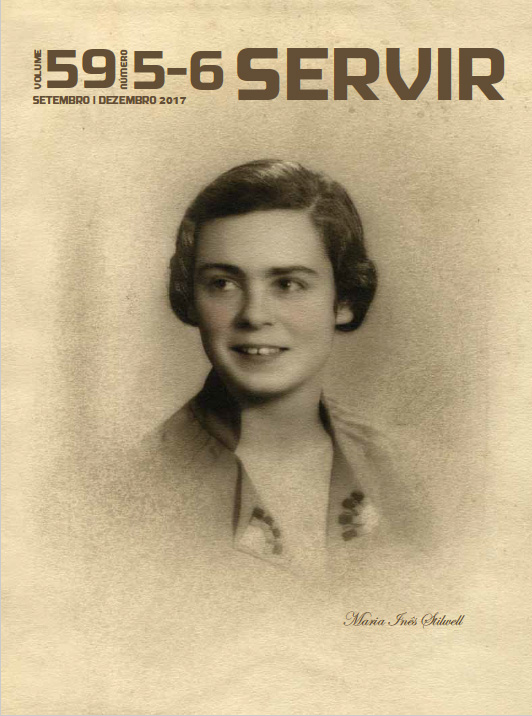Continuing care
case study of a unit convalescent
DOI:
https://doi.org/10.48492/servir025-6.23325Keywords:
Continuing care, Convalescence Unit, quality of health careAbstract
The continuing care consists essentially in the articulation among the different types of service, the continuity of care, the multidisciplinary action and the priority on keeping the person at his/her home. It is in this context that we propose, using the example of the Convalescence unit of the Misericórdia of Póvoa de Lanhoso, Private Institution of Social Solidarity (IPSS), to present an Institution with an organization that satisfies, in our opinion, the philosophy proposed for the units of continuing care. As instrument for data collection, the semistructured interview, whose content was analysed from the perspective of Bardin, was used. Four informants from the studied Unit, native of the managing areas, clinical and non-clinical practice, were interviewed in April 2010. In addition to the interviews, other sources of information were used, such as the literature, the Portuguese legislation concerning the area and the field observation done in three different moments. Nevertheless, the study is methodologically identified as a study case. This methodology was chosen due to the existence of situational variables, which transform each organisation in a single entity.
The results obtained indicate the following categories: Quality Management, Leadership, Humanized/holistic Care, Training and professional Development. These categories emphasize the importance of this Private Institution of Social Solidarity’s (IPSS) contribution to the populations’ health, highlighting the crucial role of humanization of the organization, working, structure, processes and relationships. Although the idea that generalised inequities persist in the health care sector, we believe that this unit could be used as a deconstructive example of that reality and also as a model towards the excellence of care.
Downloads
References
Alarcão, I.; Tavares, J. (2003). Supervisão da prática pedagógica. Uma perspetiva de desenvolvimento e aprendizagem. Coimbra: Livraria Almedina
Cunha, M.; Rego, A.; Cunha, R., Cabral-Cardoso, C. (2003b).Manual de Comportamento Organizacio- nal e Gestão. 2ª Edição. Lisboa: Editora RH.
Decreto-lei Nº 101/2006, de 6 de Junho de 2006. Rede Nacional de Cuidados Continuados Integrados.
Donabedian, A. Quality assurance in our health care system. Qual. Assur. Utiliz. Rev., 1 (1): 6-12,1986
Escoval, A. Gerir Serviços de Saúde em contexto de mudança. Revista da Ordem dos Enfermeiros, n.º 10, Outubro 2003, p.24
Lemos, M. Eleição e tomada de posse do Secretariado Regional de Braga da União das Misericórdias Portuguesas. Revista da Santa Casa da Misericórdia de Braga. Dezembro, 2010 (6), pp 263.
OPSS (2010). Desafios em tempo de crise. Relatório de Primavera. Lisboa: Observatório Português dos Sistemas de Saúde, .p 52.
Pacheco, S. (2002) Cuidar a pessoa em fase terminal: Perspectiva ética (1º ed.). Loures: Lusociência
Rego, A; Cunha, M. (2003a). A Essência da Liderança: Mudança x resultados x Integridade Teoria, prática, aplicações e exercícios de auto-avaliação. Lisboa, Editora RH.
Relatório de monitorização do desenvolvimento e da atividade da Rede Nacional de Cuidados Continuados Integrados (RNCCI) Fevereiro 2010, disponível em: www.portugal.gov.pt/pt/GC18/Documentos/MS/Rel_2009.pdf, acedido em [17/07/2010] p. 7-9
Renaud, M. (2008). Solicitude e Vulnerabilidade In: Carvalho, A. (Coord.) Bioética e Vulnerabilidade. Coimbra: Almedina, p.19.
Santa Casa da Misericórdia da Póvoa de Lanhoso. Relatório de atividades e contas de gerência, 2009, p. 3-22.
Torres, L. (2002). Cultura, Formação e democracia em contextos organizacionais. Instituto de Educação e Psicologia da Universidade do Minho.
UNESCO (1996) – Educação: Um Tesouro a Descobrir. Rio Tinto: Edições ASA.
Downloads
Published
How to Cite
Issue
Section
License
In order to promote the free circulation of knowledge, Servir is open access journal. All its content is available and protected under the Creative Commons license (CC BY 4.0).
The journal allows self-archiving in institutional repositories of all versions, which may become immediately available


